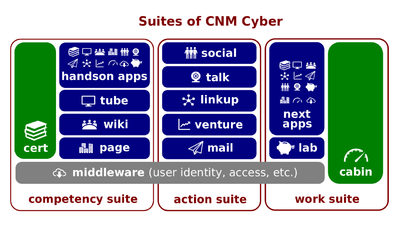Difference between revisions of "Narrated Fact vs Opinion"
(→Script) |
(→Script) |
||
| Line 8: | Line 8: | ||
:In [[linguistics]], [[language modality]] conveys the purpose of the speech. Two categories of [[grammatical mode]]s can be found in natural languages such as Arabic, Chinese, English, Hindi, Russian, Swahili, and Urdu. | :In [[linguistics]], [[language modality]] conveys the purpose of the speech. Two categories of [[grammatical mode]]s can be found in natural languages such as Arabic, Chinese, English, Hindi, Russian, Swahili, and Urdu. | ||
| − | :[[Irrealis mode]]s express desired, intended, irreal, possible, or uncertain actions or situations. [[ | + | :[[Irrealis mode]]s express desired, intended, irreal, possible, or uncertain actions or situations. For instance, [[imperative phrase]]s such as <code>Please compare!</code> express commands or requests. [[Subjunctive phrase]]s such as <code>I wish you compared!</code> express desires or wishes. Other [[irrealis phrase]]s include [[conditional phrase|conditional]], [[hypothetical phrase|hypothetical]], [[interrogative phrase|interrogative]], and other ones. Grammatically, adverbs such as ''probably'', [[modal construction]]s such as <code>if you do, I will do</code>, [[verb auxiliary|verb auxiliari]]es such as ''could'' and ''should'', and/or [[verb mode]]s convey the modality type. |
:Grammatically, the [[realis mode]] expresses real actions or situations. However, only [[factual statement]]s express real events, state of affairs, or anything else that is worthy of reporting. These ''statements'' express something what is true, is known to be true, can be tested and proven true, and/or observed through direct experience. | :Grammatically, the [[realis mode]] expresses real actions or situations. However, only [[factual statement]]s express real events, state of affairs, or anything else that is worthy of reporting. These ''statements'' express something what is true, is known to be true, can be tested and proven true, and/or observed through direct experience. | ||
Revision as of 00:26, 13 November 2020
Narrated Fact vs Opinion (hereinafter, the Lectio) is the lesson part of Technical Report Essentials lesson that introduces its participants to technical report concepts. This lesson belongs to the CNMCT Entrance section of the CNM Cyber Placement.
Content
The predecessor lectio is What Reporting Is.
Script
- In linguistics, language modality conveys the purpose of the speech. Two categories of grammatical modes can be found in natural languages such as Arabic, Chinese, English, Hindi, Russian, Swahili, and Urdu.
- Irrealis modes express desired, intended, irreal, possible, or uncertain actions or situations. For instance, imperative phrases such as
Please compare!express commands or requests. Subjunctive phrases such asI wish you compared!express desires or wishes. Other irrealis phrases include conditional, hypothetical, interrogative, and other ones. Grammatically, adverbs such as probably, modal constructions such asif you do, I will do, verb auxiliaries such as could and should, and/or verb modes convey the modality type.
- Grammatically, the realis mode expresses real actions or situations. However, only factual statements express real events, state of affairs, or anything else that is worthy of reporting. These statements express something what is true, is known to be true, can be tested and proven true, and/or observed through direct experience.
- On the contrary, opinion statements express one's feelings or beliefs, cannot be proven true or false, are false and just tried to be misrepresented as true, speculations about the future, and/or anything controversial or debatable.
- For instance, Robert Mueller's report on Trump specified,
After the report's release, President Trump tweeted,The Special Counsel states that while this report does not conclude that the President committed a crime, it also does not exonerate him.
The statement that Mueller's report exonerates Mr. Trump is not factual. Vice versa, this statement is false. President Trump probably expressed his opinion to misrepresent the report.Complete and Total EXONERATION.
- Both factual and opinion statements use verbs in the realis mode. Opinions may be expressed not only with verbs, but with other parts of speech. For instance, both statements
Just 25 dollarsandExcessive 25 dollarsrepresent opinions, but they would be factual if wordsJustandExcessiveare taken out.
- No grammatical indicator exists to distinguish between factual and opinion statements. Only one's logic can separate opinions and facts.
- Finally, normative statements describe how the world should be, how things are designed to be, how situations normally are, and so on. Grammatically, these statements may be expressed using constructions such as shall and have to of some irrealis modes.
- Nevertheless, some normative statements may be also expressed in the realis mode. Product epics and product manuals are some examples. For instance, the statement,
can be either factual or normative; it was 100% factual only at the moment when it was written.the computing servers of CNM Cloud routinely report to WorldOpp Middleware
Key terms
Closing
The successor lectio is What Tech Report Is.
